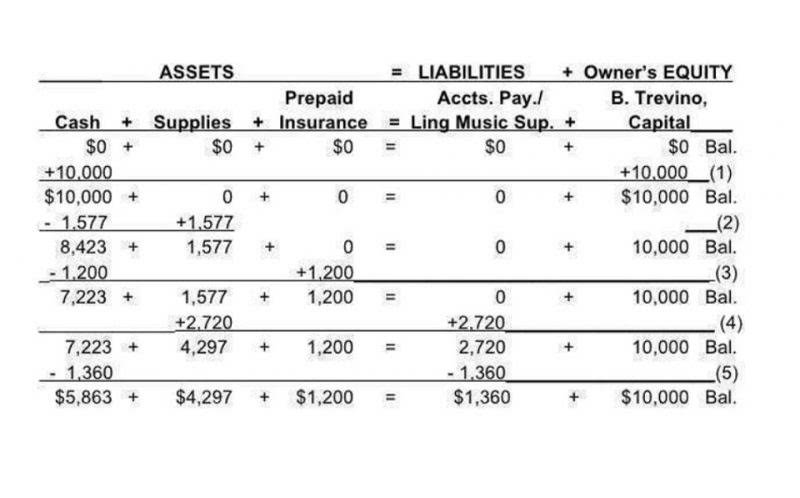Bookkeeping
What Qualifies as Miscellaneous Business Expenses?
Itemized deductions are generally used when miscellaneous costs examples the total deductible exceeds the standard deduction. Now you know the miscellaneous expenses meaning and why monitoring them is so crucial. If not manually, try using software like Moon Invoice to facilitate expense tracking and management without wasting your time and effort. Utilize a limited-days free trial to know how we made expense tracking a breeze. With miscellaneous expenses on your record, you can claim for tax deduction if possible, improve cash flows or even streamline the reimbursement process.
- Miscellaneous expenses are a broad category that consists of various types of business purchases.
- From surprise shipping fees to forgotten software subscriptions, these costs can cause more problems than you think.
- Banking services are provided by Cross River Bank and Grasshopper Bank, N.A; Members FDIC.
- If you are a small business owner or a self-employed person, miscellaneous expenses will have to be itemized in your taxes as you can’t just take the standard deduction for them.
- ABC works especially well for businesses with complex operations where different products or services consume resources at different rates.
Business Incidentals
This type of financial planning helps organizations plan for and avoid unexpected costs. They typically cover small, non-recurring expenditures, such as items bought for the office, business trips, and other similar fees. Expenses are usually considered part of a company’s operating costs and can be one-time https://punterbij.nl/section-2-benefits-of-becoming-a-b-corp-business/ or ongoing. Understanding the distinct meaning of “miscellaneous expenses” can be essential to properly accounting for costs in any business. Companies identify and keep track of small and unusual expenses under this category of expenses. To claim a tax deduction for miscellaneous expenses, you will need to itemize them with your other categorized expenses to determine the total for unreimbursed costs and tax preparation fees.
What Expenses Qualify
- Taking advantage of tax deductions is an essential way to minimize business expenses while staying compliant with tax laws.
- This additional Rs. 10,000 is known as a miscellaneous expense as it does not fall into the category of any regular expenditure, and it is a small amount.
- The key factors are that the clothing is necessary for your work and unsuitable for general use.
- Miscellaneous expenses may include costs like office supplies or minor repairs that do not easily fit into more specific expense categories.
- With a miscellaneous expenses category in place, you’ll be able to see exactly what your business is spending for these unpredictable and irregular goods and services.
- Working with financial data often means handling bank statements that come in PDF.
By properly categorizing and Travel Agency Accounting tracking these costs, you can maximize deductions and reduce your overall taxable income, ultimately benefiting your business’s financial position. Incidental expenses, while often small in scale, can accumulate and impact a company’s financial health if not managed properly. By adopting these tools, businesses can gain better control over miscellaneous expenses, optimize their spending, and ultimately improve their financial health. By diligently tracking and deducting miscellaneous expenses, businesses can reduce their taxable income and lower their tax liability, ultimately saving money and improving their bottom line.
Free Petty Cash Reconciliation Template

You probably know how much you are spending on food, clothes and housing, but what about miscellaneous expenses? From an accounting perspective, miscellaneous expenses include credit card fees, regulatory fees and other business costs that don’t fit within specific tax categories. In either case, it’s important to figure out where your money goes and budget accordingly. You’re here to understand what might be considered appropriate “miscellaneous expenses”. In short, these are all the miscellaneous business expenses you can use for tax deductions that aren’t found elsewhere on your tax forms. They’re often small transactions that don’t fit within a ledger’s specified accounts.

Invoice Software For
Insurance protects your business from various risks and represents a necessary indirect expense, including those related to every cost object. General equipment maintenance, including cell phones, supports business operations but isn’t tied to specific products. Every business facility requires utilities and grounds maintenance to function, representing ongoing fixed indirect costs and indirect costs that fluctuate with usage and seasons. These expenses, while not part of the regular budget, are still part of the individual’s overall financial picture.

Parking and Toll Charges
- If you’re unsure how to classify an expense, talk to an accountant who is familiar with the type of business you run and the tax laws that apply.
- These expenses can vary greatly depending on the type of business and its operations.
- The real-time dashboards provide business owners with an up-to-date view of their financial situation.
- Conversely, businesses generally retain the ability to deduct legitimate miscellaneous expenses incurred in the course of their operations.
- Just a few taps on your smartphone and you can zoom into expense reports on the go.
- HR, accounting, and legal departments provide essential functions that support the entire business.
- Typically, tools with a lifespan of one year or less are worth less than $200 and would fall under this category.
If you’re unsure if you can claim an expense, it’s important to check with a tax professional, as regulations may be different depending on where you do business. Thus, miscellaneous expenses must be tracked and categorized correctly to ensure accurate financial reporting and optimal business spending. This means that individuals can no longer deduct unreimbursed employee expenses, such as job search costs or work-related education. Other examples of suspended deductions include tax preparation fees, investment expenses, and hobby expenses exceeding hobby income. This suspension is set to expire after the 2025 tax year, reverting to prior law unless Congress acts to extend or modify it.
